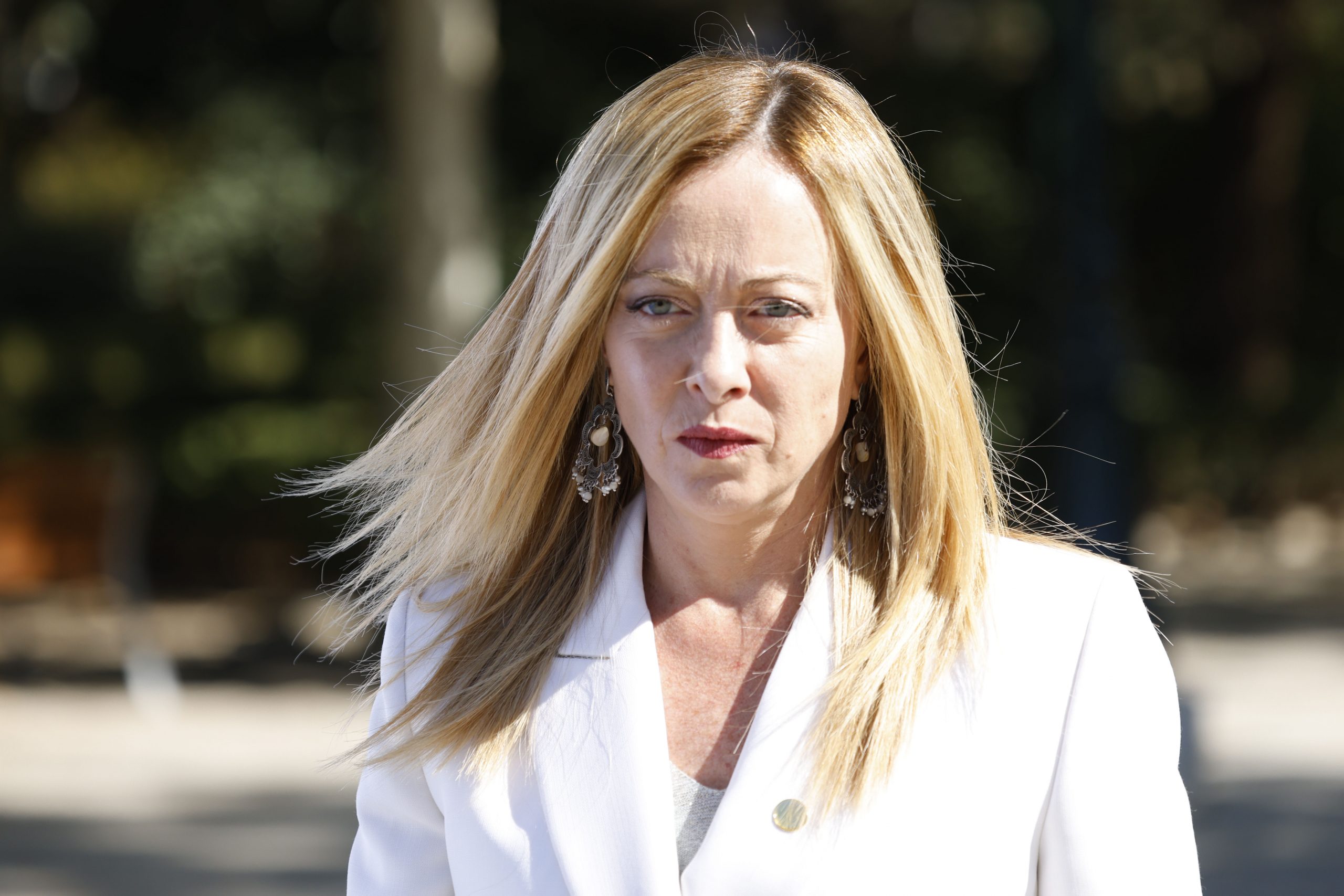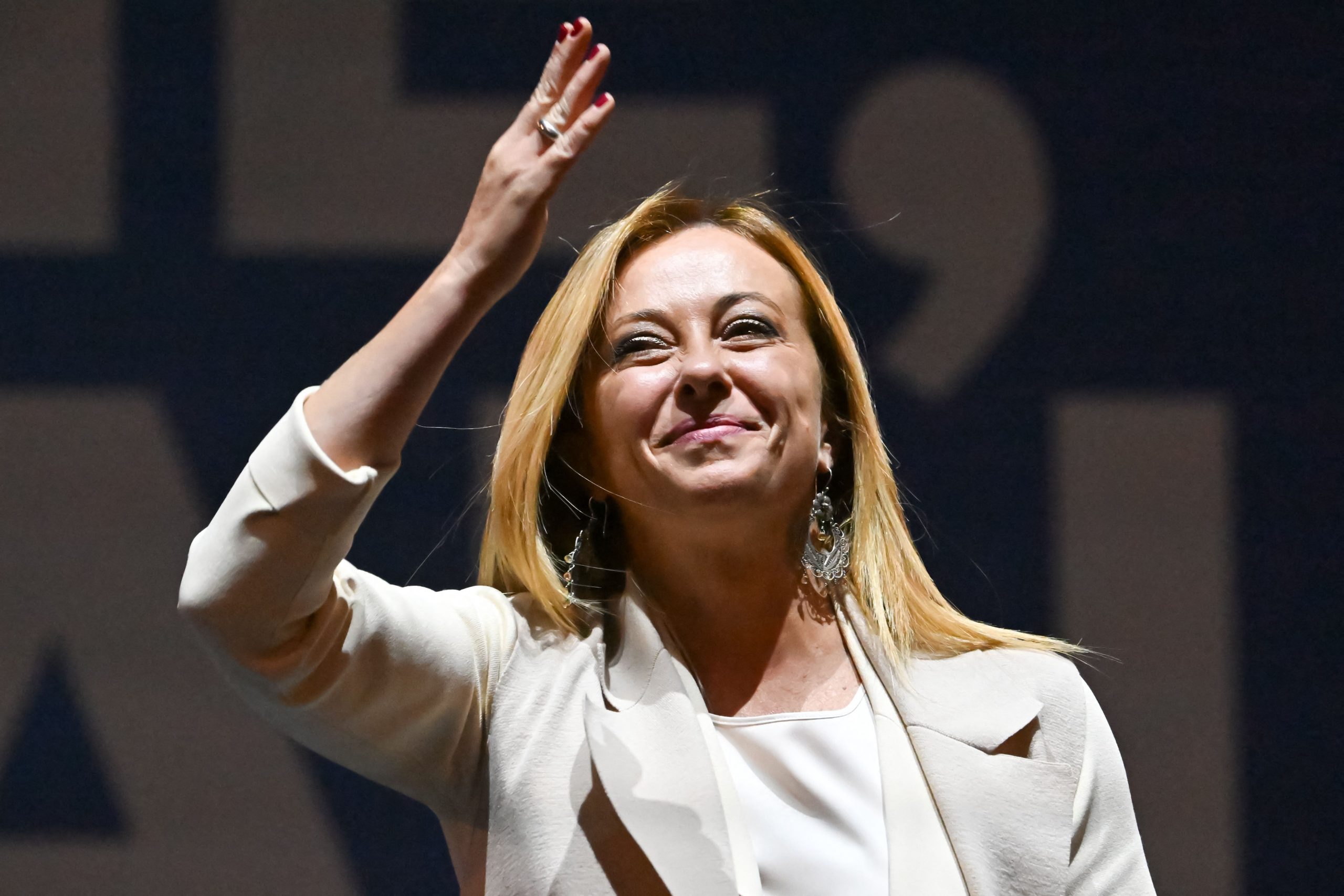Understanding Giorgia Meloni Net Worth: What The Public Knows
It's quite natural, really, to wonder about the financial standing of public figures, especially those in positions of great responsibility. People often feel a connection to their leaders, and that connection, you know, sometimes extends to curiosity about their personal lives, including their finances. It's almost like wanting to get a fuller picture of someone who represents a whole nation.
So, when we talk about Giorgia Meloni net worth, it's not just about a number. It's about transparency, about how public servants manage their resources, and about what the public can actually know. This topic, you see, often sparks a lot of discussion, and it's a very common thing for people to look up.
We'll take a look at what is generally known about her financial situation, considering how public officials' earnings and assets are typically reported. This article, in a way, aims to bring some clarity to a subject that can sometimes feel a bit murky, helping you get a better grasp of the situation.
Table of Contents
- Who is Giorgia Meloni? A Look at Her Path
- Personal Details & Biography
- The Financial Picture: Giorgia Meloni Net Worth Explained
- Sources of Income for a Prime Minister
- Public Declarations and Assets
- What Shapes a Leader's Wealth?
- What People Are Asking About Her Finances
- Staying Informed on Public Figures' Finances
- Final Thoughts on Transparency
Who is Giorgia Meloni? A Look at Her Path
Giorgia Meloni, as a prominent figure in Italian politics, has had a quite interesting path to her current position. She has been involved in public service for many years, starting her political career rather early on. Her journey, in some respects, shows a steady rise through the ranks of Italian governance.
She began her political work at a local level, gaining experience and building her reputation. Over time, she moved into national politics, eventually becoming a key voice for her party. This kind of progression, you know, is fairly typical for someone who reaches such a high office.
Her work has involved various roles in government and in her political party, giving her a lot of exposure to how the country runs. This background, actually, is what shapes her current responsibilities as a leader. It's a long story of dedication, really, to public life.
Personal Details & Biography
Understanding a public figure often means looking at their personal journey and background. Giorgia Meloni, like anyone in the public eye, has a story that shapes who she is and how she operates. Her life details, in a way, provide a context for her political actions.
She was born in Rome, Italy, and has maintained strong ties to her roots. Her early experiences, you know, played a part in forming her views and her commitment to public service. She has, for example, often spoken about her upbringing and how it influenced her beliefs.
Her family life and personal choices, too, are sometimes topics of public interest, as is often the case with leaders. She has, you know, generally kept her private life somewhat separate from her public persona, but certain aspects are naturally known to the public.
| Detail | Information |
|---|---|
| Full Name | Giorgia Meloni |
| Date of Birth | January 15, 1977 |
| Place of Birth | Rome, Italy |
| Nationality | Italian |
| Political Party | Fratelli d'Italia (Brothers of Italy) |
| Current Role | Prime Minister of Italy |
| Education | Diploma from Amerigo Vespucci Institute |
| Marital Status | Not married, has a partner |
| Children | One daughter |
The Financial Picture: Giorgia Meloni Net Worth Explained
When people talk about Giorgia Meloni net worth, they are really trying to get a sense of her financial standing as a public servant. It's a topic that comes up a lot for politicians, you know, because transparency around finances is seen as a very important part of public trust. The exact figures for anyone's personal wealth can be a bit hard to pinpoint precisely, especially for public figures, but there are general ways we can understand it.
Public officials, particularly those in high office like a Prime Minister, are typically required to make declarations about their income and assets. These declarations, you see, are usually made public, allowing citizens to review them. This system is put in place, in a way, to ensure accountability and to prevent conflicts of interest. It's a pretty standard practice in many democratic countries, actually.
So, while we might not have a precise, real-time number that updates daily, we can look at the publicly available information to get a general idea. This usually involves official salary figures and any declared assets. It's about looking at the picture that is, you know, available for everyone to see.
Sources of Income for a Prime Minister
A Prime Minister's primary source of income is, of course, their official salary. This salary is set by law and is a matter of public record. It's not like, you know, a private business where earnings can fluctuate wildly. The amount is fixed and publicly known, which helps with transparency.
Beyond the basic salary, a Prime Minister might also receive various allowances related to their duties. These could include funds for official expenses, housing, or travel. These allowances, you see, are meant to cover the costs associated with running the government and representing the country, not to add to personal wealth.
For instance, official travel for state visits or meetings would be covered by public funds, not out of their personal pocket. This is, you know, a very important distinction to make when considering a leader's financial situation. It's all about separating personal funds from public resources, which is quite vital.
Any other income sources, such as from past professional activities or investments, would also typically need to be declared. However, once someone takes on such a high public office, their focus is almost entirely on their governmental role, limiting outside earnings. This is, in a way, a safeguard against potential conflicts.
Public Declarations and Assets
In Italy, as in many other nations, high-ranking politicians, including the Prime Minister, are expected to file annual financial declarations. These documents, you know, offer a snapshot of their financial situation at a specific point in time. They usually list things like income from their official position, any other declared earnings, and assets they own.
Assets might include real estate, such as a home or other properties. They could also include financial holdings, like savings accounts, investments in stocks or bonds, or even certain types of personal property. The idea, you see, is to provide a comprehensive, albeit sometimes generalized, view of their wealth.
These declarations are not always, you know, exact market valuations of every single item, but they provide categories and values that give a good indication. For example, a property might be listed at its cadastral value, which is often different from its market value. So, the figures are, in a way, official estimates.
The purpose of these public disclosures is pretty straightforward: to build and maintain public trust. When citizens can see, more or less, what their leaders own and earn, it helps to ensure that decisions are being made for the public good, rather than for personal financial gain. It's a very important aspect of democratic governance, that.
What Shapes a Leader's Wealth?
Several factors can influence what a leader's reported wealth looks like. One big factor is simply the duration of their time in public service. Someone who has been a politician for many years, you know, might naturally have accumulated more savings or assets compared to someone who is newer to public life.
Past professions also play a role. If a leader had a successful career in a high-paying field before entering politics, their net worth might reflect that prior earning capacity. However, once in office, their primary income stream becomes the public salary, which is often less than what some top private sector roles might offer. It's a different kind of compensation, really.
Family background can also be a factor, though this is less about current earnings and more about inherited wealth or assets. Such things would typically be declared if they fall within the scope of public disclosure requirements. This is, you know, something that applies to anyone, public figure or not.
Investment choices, too, can shape a leader's financial picture over time. Like anyone else, public figures might invest their savings, and the performance of those investments could affect their overall reported wealth. These are, in a way, personal financial decisions that are often subject to public scrutiny when you hold a high office.
Ultimately, when we consider Giorgia Meloni net worth, we are looking at figures that are largely derived from her official salary and declared assets, as required by law for public officials. It's about understanding the financial framework that surrounds someone in her position, which is, you know, quite different from a private citizen's finances.
What People Are Asking About Her Finances
It's very common for people to have questions about the finances of public figures. Transparency is something many citizens care about, and so, you know, some common questions tend to pop up. Here are a few that people often wonder about when it comes to a leader's financial standing:
Is Giorgia Meloni's net worth publicly available?
Generally speaking, the income and assets of high-ranking public officials in Italy, including the Prime Minister, are indeed made public through official declarations. These documents are usually accessible on government websites or through relevant public transparency portals. So, you can, more or less, find information about it, though not always a single, exact number.
How does a Prime Minister's salary compare to other professions?
A Prime Minister's salary is typically a substantial sum, reflecting the immense responsibility of the role. However, it's often fixed and, in some cases, might be less than what a top executive in the private sector could earn. It's a public service salary, you know, designed to be fair but not excessively high, in a way.
Are there rules about how politicians manage their personal investments?
Yes, there are usually strict rules and ethical guidelines in place to prevent conflicts of interest. Politicians, especially those in high office, might be required to put their assets into a blind trust or divest from certain investments to ensure their decisions are for the public good and not influenced by personal financial gain. This is, you know, a very important part of maintaining integrity in public office.
Staying Informed on Public Figures' Finances
Keeping up with the financial details of public figures is, in a way, a part of civic engagement for many people. It speaks to a broader interest in transparency and accountability within government. There are several ways, you know, you can stay informed about these kinds of matters.
Official government transparency portals are usually the best place to start. These websites often host the annual financial declarations of politicians. Looking at these documents can give you a pretty good idea of a leader's declared income and assets. It's a direct source, basically.
Reputable news organizations also play a very important role. Investigative journalists often analyze and report on these financial declarations, providing context and deeper insights. They can help to explain what the numbers mean and how they fit into the broader picture. So, following trusted news sources is a good idea, too.
Organizations focused on good governance and anti-corruption also frequently publish reports and analyses on politicians' finances. These groups, you know, often work to make complex financial information more accessible and understandable for the general public. They can be a great resource, really, for staying informed.
Understanding the financial aspects of public service is, in some respects, about understanding the system itself. It's about knowing what is required of leaders and what information is available to citizens. This kind of knowledge, you know, helps foster a more informed public discourse about governance.
For more general information about how public officials' finances are managed and reported in democratic systems, you could look up resources on governmental ethics or transparency initiatives. Transparency International, for example, offers insights into these global practices.
You can learn more about political transparency on our site, and we also have more content on public service and accountability on this page .
Final Thoughts on Transparency
The discussion around Giorgia Meloni net worth, or any public figure's finances, really, comes down to the importance of transparency in public life. It's about the public's right to know, and about ensuring that those who serve are held to a very high standard of accountability. This open approach, you know, helps build trust between leaders and the people they represent.
Understanding the financial declarations of public officials gives citizens a better grasp of how their leaders manage their personal affairs while in office. It's a way, in some respects, to see that decisions are made with the public's best interest at heart, free from personal financial influence. This is, basically, what makes a democratic system work effectively.
So, keeping an eye on these details, even if they are just general estimates based on public records, helps to maintain a healthy public discourse. It encourages a system where leaders are open about their financial standing, which is, you know, quite vital for a functioning society. It's about fostering a culture of openness, really, in public service.

Giorgia Meloni Net Worth - Wiki, Age, Weight and Height, Relationships

Giorgia Meloni Net Worth - Wiki, Age, Weight and Height, Relationships

Giorgia Meloni Net Worth - Wiki, Age, Weight and Height, Relationships